
Do you have what you need to make your garden grow?


Garden Center
Store Hours
Mon-Sat:
6:00am - 10:00pm
Sun:
7:00am - 8:00pm
Curbside:
09:00am - 6:00pm
Location
Popular at Your Garden Center
Trending Garden Supplies in May
Trending Live Plants
Garden Project Calculators
;Resize=(703,395.44))
Grass Seed Calculator
When you're ready to seed your lawn, our calculator helps you estimate the amount of grass seed you'll need to get the job done.
;Resize=(703,395.44))
Mulch Calculator
Enter your preferred material, the square footage and mulch depth of the coverage space for accurate results.
;Resize=(703,395.44))
Fencing Calculator
We'll calculate the amount of fencing you should purchase based on your property needs.
Shop Outdoor and Garden Brands
Frequently Asked Questions About Gardening
Which planting zone am I in?
Check the USDA zone map, as planting zones have shifted over the years. Zones with higher numbers can plant earlier in the year. Choose plants that are meant for your zone and increase your odds of gardening success.
What's direct sow in gardening?
If the soil isn't frozen or cold, consider planting your flower, fruit, or vegetable seeds directly into your garden. This is called the "direct sow" method. Plant after the threat of frost is gone for the season, as sprouts and seedlings can't weather those conditions. You can also start your seeds indoors if you'd like. Consult your seed envelope for when and how to sow seeds.
Do you carry organic plants and seeds?
Yes, we've got a variety of organic options, including organic veggie seeds and fruit seeds, as well as organic herb and flower seeds that are subject to availability. We carry the organic soil to plant them in as well as the organic fertilizer to feed your plants.
Do I have to harden off my seedlings before planting them outside?
Yes, if you raised plants indoors from seeds in your own plant nursery, harden them before you transplant them. Hardening allows your seedlings to adjust to outdoor life, spring rains, and temperature swings, making them more resilient against cold snaps. It slows their growth until they're strong and ready to take off during a spring warm front.
Can I strengthen my seedlings before planting them outdoors?
Get your sprouts used to storms and breezy spring days with a fan and keep fungus from growing in damp conditions. Set up an oscillating floor fan on low to mimic the wind. Just the gentlest breeze for several hours a day will do the trick. The stems and leaves will get used to blowing in the breeze and not snap when a gust comes through. If you don't set up a fan, your seedlings may be more sensitive to strong winds. Try to plant between storms.
Should I use peat moss starters or coir starters?
Seed starters, full of nutrients in pellets or pots, work for new and experienced gardeners alike. You don't have to use these starters if you're planting in soil, but you may want to. Starting seeds in peat pots works best for delicately rooted plants like carrots and beets, as well as flowers that need acidic soil. Some people prefer coir starters instead, as they have a neutral pH. Check what type of soil your plants need to help narrow it down, and chat with a garden center associate if you need more info.
Garden Project Ideas
The Home Depot Garden Center at Fresno
Set Up For Springtime
It's time to start thinking of spring. Clean the shed and sweep out the gazebo to prepare for sprouts poking up, warmer temperatures, and fragrant breezes. Planting seeds indoors means you'll be ready to transplant young veggie plants and spring flowers when the ground thaws and the frosts are through. You might even want to sow organic seeds directly into the earth. What better way to start than by exploring your favorite local plant nursery, The Home Depot Garden Center in Fresno?
Plant Hardiness Zones Explained
The first thing to know when planting spring flowers, veggies, and other seeds is your planting zone. Every location in the U.S. and its territories is sorted into blocks by climate. Find your zone on the USDA zone map and learn when to plant seeds.
For example, you could transplant bell peppers outdoors in mid-March in Zone 10, but not until the end of May in Zone 4. You'll have good results with plants that have your zone number or less. In other words, a Zone 7 garden can support plants listed as Zones 1–7. You can plant seeds indoors roughly a month before you can plant them outside, known as direct sow. Always read your seed packet for details. If you start seeds later than recommended, it's not ideal, but it will even out as time passes.
Gardening in Your Growing Zone
This area is in growing Zones 8 or 9, but it's desert, so utilize greenhouses to grow herbs and vegetables. Native plants like succulents, cacti, and other hardy desert shrubs will easily grow outside. Other beloved garden vegetables love the heat, like peppers, tomatoes, cucumbers, and squash. If you start them indoors and carefully introduce them outdoors in the shade, you can enjoy raising vegetables even in a dry climate. However, many spring flowers are sensitive to that much sun and heat, so research to find which varieties can handle the weather before planting outdoors.
An indoor garden of greenery is also lovely. Look into house plants and create an oasis inside your home. A sunroom or enclosed porch is a great place to encourage plant growth, especially with plant stands and pots of all sizes. Your spring flower seed choices, whether they're perennials or annuals, can also often get an indoor start.
Start Seeds Indoors
Save money when you grow your garden from seeds by starting them indoors in your own plant nursery. We've got all the seed starter supplies you'll need. For best results, you'll want warming lights or a warming mat to go with your seed tray or plant pots. If you're planting a larger garden, use seed trays — like the ones you see sprouts in at your Fresno Garden Center — to stay organized and plant tiny soil plugs when the time comes. You can also use pots with potting soil and seed starter mix.
Measure your finger to use it as a ruler. In general, you'll plant 3–5 seeds, then press them into the soil to the depth you need with your finger. Mark where you planted the seeds with a toothpick or plant tag. That way, you'll know where your seeds should pop up, and you can be sure they're not weeds. Otherwise, it'll be a surprise when the sprouts push out of the soil.
Sprouts
When your seeds have sprouted but aren't ready to go outside yet, you can still prepare them for outdoor life. These inch-tall micro-seedlings are fragile but resilient. Seedlings certainly don't get all this pampering in nature, so they can handle more than you think. However, don't go overboard, as your sprouts are still babies. You can even use an oscillating floor fan on low to mimic the wind and strengthen their stems.
Harden Your Seedlings
Remember to harden off your seedlings once they're a few inches tall. This process of gradually introducing them to the outdoors makes them stronger in the long run. Hardening means you're less likely to lose your growing garden during a sudden cold snap.
Transplant Young Plants Into Their New Homes
When your plants have three or four real leaves — different from mini seedling leaves — it's time to transplant them. In quality soil, dig a hole the same size as the dirt plug where your transplant has been growing. If your ground soil isn't fantastic, dig a slightly bigger hole and fill the extra space with nutrient-rich topsoil. Apply fertilizer as directed, either in the hole or on top of the soil after it's planted. Don't apply more than recommended, as you could burn and kill the plant instead of helping it along.
Protect Your Garden With Mulch
Finish off your garden with mulch and compost. Compost enriches the soil so your garden can grow even better. It may help foster stronger and larger plants that bear more fruit and flowers. Mulch controls weeds and keeps the soil moist. Mulch and compost can be DIY creations, but you can also purchase them in-store. The next time you're looking for "mulch near me," stop by the Garden Center to get the perfect amount.
Greet the Spring
Early spring is an exciting time in the world of gardening. Plan your garden and landscaping, prepare to fertilize your lawn, and browse The Home Depot nursery to find inspiration on which spring flowers to plant when the weather warms. For those without lawns, consider adding artificial grass, an outdoor rug, or a pellet grill to your balcony or patio. Shop for the fertilizer, seeds, and soil you need in the aisles of your Fresno Garden Center, online, or on our mobile app. Let's get growing together.
Nearby Stores
Find Another Store
7150 N Abbey St
Fresno, CA 93720
4.15 mi
Mon-Sat: 6:00am - 10:00pm
Sun: 7:00am - 8:00pm
845 W Shaw Avenue
Clovis, CA 93612
6.80 mi
Mon-Sat: 6:00am - 10:00pm
Sun: 7:00am - 8:00pm
4864 East Cesar Chavez Boulevard
Fresno, CA 93727
8.37 mi
Mon-Sat: 6:00am - 10:00pm
Sun: 7:00am - 8:00pm
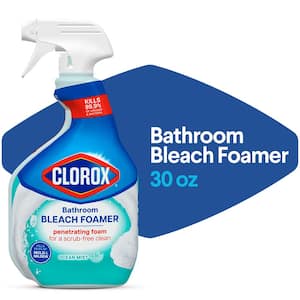
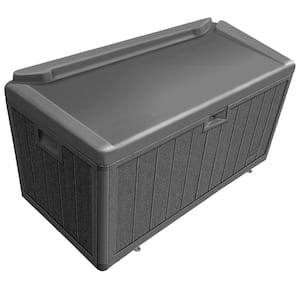
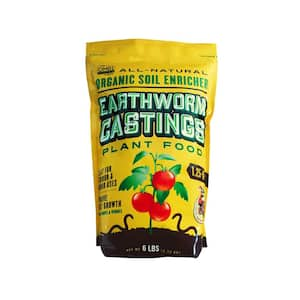
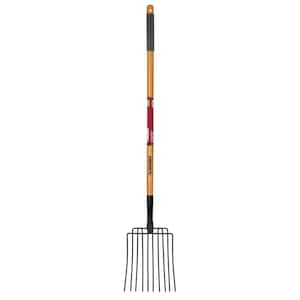
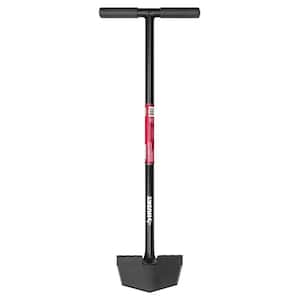
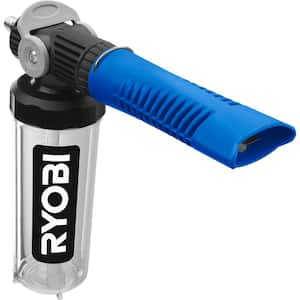
)
)
/17_514245_S_012_Product%20Image%20(square).jpg?im=Resize=(300,300))
;Resize=(300,300))
)
)
)
)
)
/2023_P2_Rain_Barrels_Product%20Image%20(square).jpg?im=Resize=(300,300))
)
;Resize=(300,300))
;Resize=(300,300))
;Resize=(300,300))
/12_SOIL_B_0420_Social%20media%20(square).jpg?im=Resize=(300,300))
;Resize=(300,300))
)
)
;Resize=(300,300))
;Resize=(300,300))
;Resize=(300,300))
;Resize=(300,300))
)
)
;Resize=(300,300))
;Resize=(300,300))
;Resize=(300,300))
;Resize=(300,300))
;Resize=(300,300))
)
/18Patio_Camden_Seagrass_5pcSeating_Planters_302468736_DTL3_L_Social%20media%20(square).jpg?im=Resize=(300,300))
;Resize=(300,300))
;Resize=(300,300))
;Resize=(300,300))
)
;Resize=(300,300))
;Resize=(300,300))
)
;Resize=(300,300))
)
.jpeg?im=Crop,rect=(363.69230769230774,1.2307692307692308,958.7692307692308,958.7692307692308);Resize=(300,300))
;Resize=(300,300))
)
;Resize=(300,300))
;Resize=(300,300))
)
;Resize=(300,300))
)
)
;Resize=(300,300))
;Resize=(300,300))
)
)
;Resize=(300,300))
)
;Resize=(300,300))
;Resize=(300,300))
)
)
;Resize=(300,300))
)
)
/Capello_Spring_Mum_10in_Social%20media%20(square).jpg?im=Resize=(300,300))
;Resize=(300,300))
)
)
;Resize=(300,300))
)
)
;Resize=(300,300))
)
)
;Resize=(300,300))
;Resize=(300,300))











































